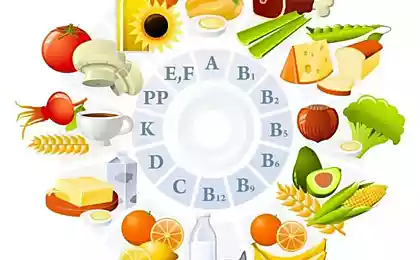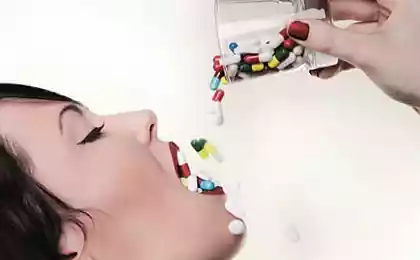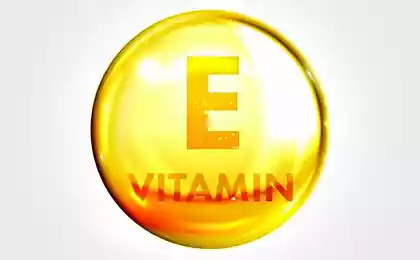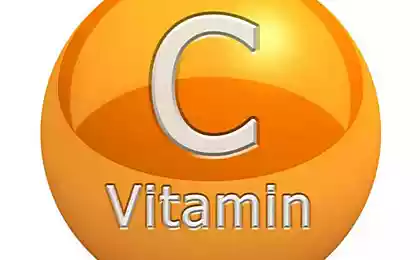491
Vitamin E: the "right" and "wrong"
None of the pills can't get rid of the need to maintain a healthy dietrecently was in the "doghouse" vitamin E, which for long time were in number of leaders among health enhancing antioxidants – the active fighters against destructive free radicals. While some researchers believe questionable use of more than 400 IU of vitamin E a day, many doctors believe that taking any amount of vitamin E excessive. The data point of view is in contradiction to previous studies which recommend the intake of vitamin E at a dose of 1,000 IU.Who is right?
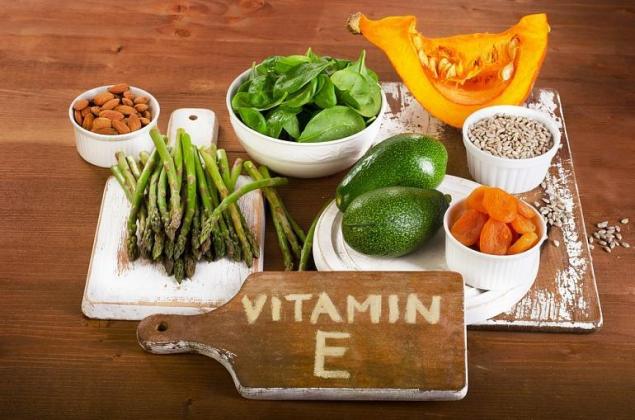
Dr. Edgar R. Miller of Johns Hopkins University, presented data from his analysis of nineteen studies involving patients aged over 60 years who had preexisting conditions such as cancer, heart disease, Alzheimer's disease and kidney disease. Millers observations show that high-dose vitamin E (400 IU or more) was associated with increased mortality. It should be noted that this relationship was not related to the level of 150 IU.
According to nutritionist Dr. Michael Hirt, Director of the center for integrated medicine in California, one can not say good or bad vitamin E (as well as any other vitamin). The picture is actually more complex. He believes that many studies on vitamin E did not differ high quality. Moreover, many patients are taking the wrong vitamin E, which can be even harmful.
Vitamin E is not just a vitamin. It is a family of four components, called Tocopherols, each of which has its own characteristics of application and activity. Moreover, the vitamin e family, includes little-known to most people, tocotrienols (tocotrienols), which help lower cholesterol and reduce atherosclerosis.Both Tocopherols and tocotrienols consist of parts which are called alpha, beta, gamma and Delta. Thus, it is important that you get all of the components of vitamin E, not just individual parts.
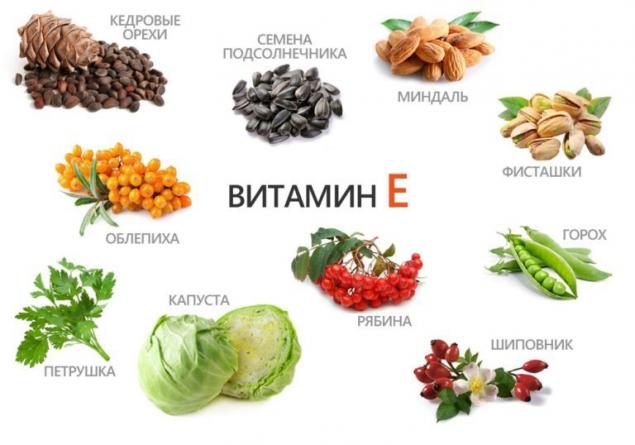
People who purchase a package of vitamin E in the supermarket and even in the store healthy pisipati always purchase synthetic vitamin, which contains only alpha tocopherol. Synthetic alpha-tocopherol is not harmful if You take it in moderate doses. But he bothers to do his useful work the vitamin contained in foods. The reason: synthetic alpha-vitamin E blocks the receptors of vitamin E, is designed to its natural relative.Thus, using artificial vitamin E You niveliruya the use of natural diet product.
THE RIGHT VITAMIN E
From where people should get the right vitamin E?
A "good" vitamin is found in almonds, peanuts, vegetables and seed oils, whole grains and enriched cereals.
However, in order to get 400 IU a day you should eat two pounds of nuts, or to drink eight cups of olive oil. I think it will stop those of us who want to put on the shelf a box of vitamins. On the other hand the cost of "the correct vitamin E" is quite significant. Typically, this product contains alpha, beta, gamma and Delta Tocopherols combined with tocotrienols.
And finally, said Dr. Hirt, even the best vitamin E do not replace a healthy lifestyle. Despite the fact that 400 IU "the right vitamin E" can replace two pounds of nuts and eight cups of olive oil, but none of the pills in the world can't save us from having to stick to a healthy diet that includes fruits, vegetables, quality protein, healthy fats and whole grains. If You want to Supplement your diet with vitamin E, do it under the supervision of specialists, pick the right daily dose. published
P. S. And remember, just changing your mind — together we change the world! ©
Source: //www.medlinks.ru/article.php?sid=20286

Dr. Edgar R. Miller of Johns Hopkins University, presented data from his analysis of nineteen studies involving patients aged over 60 years who had preexisting conditions such as cancer, heart disease, Alzheimer's disease and kidney disease. Millers observations show that high-dose vitamin E (400 IU or more) was associated with increased mortality. It should be noted that this relationship was not related to the level of 150 IU.
According to nutritionist Dr. Michael Hirt, Director of the center for integrated medicine in California, one can not say good or bad vitamin E (as well as any other vitamin). The picture is actually more complex. He believes that many studies on vitamin E did not differ high quality. Moreover, many patients are taking the wrong vitamin E, which can be even harmful.
Vitamin E is not just a vitamin. It is a family of four components, called Tocopherols, each of which has its own characteristics of application and activity. Moreover, the vitamin e family, includes little-known to most people, tocotrienols (tocotrienols), which help lower cholesterol and reduce atherosclerosis.Both Tocopherols and tocotrienols consist of parts which are called alpha, beta, gamma and Delta. Thus, it is important that you get all of the components of vitamin E, not just individual parts.

People who purchase a package of vitamin E in the supermarket and even in the store healthy pisipati always purchase synthetic vitamin, which contains only alpha tocopherol. Synthetic alpha-tocopherol is not harmful if You take it in moderate doses. But he bothers to do his useful work the vitamin contained in foods. The reason: synthetic alpha-vitamin E blocks the receptors of vitamin E, is designed to its natural relative.Thus, using artificial vitamin E You niveliruya the use of natural diet product.
THE RIGHT VITAMIN E
From where people should get the right vitamin E?
A "good" vitamin is found in almonds, peanuts, vegetables and seed oils, whole grains and enriched cereals.
However, in order to get 400 IU a day you should eat two pounds of nuts, or to drink eight cups of olive oil. I think it will stop those of us who want to put on the shelf a box of vitamins. On the other hand the cost of "the correct vitamin E" is quite significant. Typically, this product contains alpha, beta, gamma and Delta Tocopherols combined with tocotrienols.
And finally, said Dr. Hirt, even the best vitamin E do not replace a healthy lifestyle. Despite the fact that 400 IU "the right vitamin E" can replace two pounds of nuts and eight cups of olive oil, but none of the pills in the world can't save us from having to stick to a healthy diet that includes fruits, vegetables, quality protein, healthy fats and whole grains. If You want to Supplement your diet with vitamin E, do it under the supervision of specialists, pick the right daily dose. published
P. S. And remember, just changing your mind — together we change the world! ©
Source: //www.medlinks.ru/article.php?sid=20286

